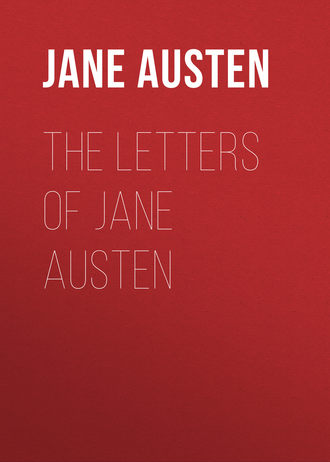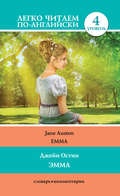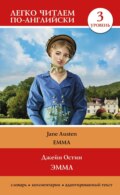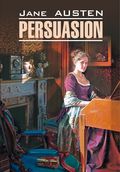
Джейн Остин
The Letters of Jane Austen
LXXV
Chawton, Sunday (Sept. 8, 1816).
My dearest Cassandra, – I have borne the arrival of your letter to-day extremely well; anybody might have thought it was giving me pleasure. I am very glad you find so much to be satisfied with at Cheltenham. While the waters agree, everything else is trifling.
A letter arrived for you from Charles last Thursday. They are all safe and pretty well in Keppel St., the children decidedly better for Broadstairs; and he writes principally to ask when it will be convenient to us to receive Miss P., the little girls, and himself. They would be ready to set off in ten days from the time of his writing, to pay their visits in Hampshire and Berkshire, and he would prefer coming to Chawton first.
I have answered him, and said that we hoped it might suit them to wait till the last week in Septr., as we could not ask them sooner, either on your account or the want of room. I mentioned the 23rd as the probable day of your return. When you have once left Cheltenham, I shall grudge every half-day wasted on the road. If there were but a coach from Hungerford to Chawton! I have desired him to let me hear again soon.
He does not include a maid in the list to be accommodated; but if they bring one, as I suppose they will, we shall have no bed in the house even then for Charles himself, – let alone Henry. But what can we do?
We shall have the Gt. House quite at our command; it is to be cleared of the Papillons' servants in a day or two. They themselves have been hurried off into Essex to take possession, – not of a large estate left them by an uncle, but to scrape together all they can, I suppose, of the effects of a Mrs. Rawstorn, a rich old friend and cousin suddenly deceased, to whom they are joint executors. So there is a happy end of the Kentish Papillons coming here.
No morning service to-day, wherefore I am writing between twelve and one o'clock. Mr. Benn in the afternoon, and likewise more rain again, by the look and the sound of things. You left us in doubt of Mrs. Benn's situation, but she has bespoke her nurse… The F. A.'s dined with us yesterday, and had fine weather both for coming and going home, which has hardly ever happened to them before. She is still unprovided with a housemaid.
Our day at Alton was very pleasant, venison quite right, children well behaved, and Mr. and Mrs. Digweed taking kindly to our charades and other games. I must also observe, for his mother's satisfaction, that Edward at my suggestion devoted himself very properly to the entertainment of Miss S. Gibson. Nothing was wanting except Mr. Sweeney; but he, alas! had been ordered away to London the day before. We had a beautiful walk home by moonlight.
Thank you, my back has given me scarcely any pain for many days. I have an idea that agitation does it as much harm as fatigue, and that I was ill at the time of your going from the very circumstance of your going. I am nursing myself up now into as beautiful a state as I can, because I hear that Dr. White means to call on me before he leaves the country.
Evening.– Frank and Mary and the children visited us this morning. Mr. and Mrs. Gibson are to come on the 23rd, and there is too much reason to fear they will stay above a week. Little George could tell me where you were gone to, as well as what you were to bring him, when I asked him the other day.
Sir Tho. Miller is dead. I treat you with a dead baronet in almost every letter.
So you have C. Craven among you, as well as the Duke of Orleans and Mr. Pocock. But it mortifies me that you have not added one to the stock of common acquaintance. Do pray meet with somebody belonging to yourself. I am quite weary of your knowing nobody.
Mrs. Digweed parts with both Hannah and old cook: the former will not give up her lover, who is a man of bad character; the latter is guilty only of being unequal to anything.
Miss Terry was to have spent this week with her sister, but as usual it is put off. My amiable friend knows the value of her company. I have not seen Anna since the day you left us; her father and brother visited her most days. Edward and Ben called here on Thursday. Edward was in his way to Selborne. We found him very agreeable. He is come back from France, thinking of the French as one could wish, – disappointed in everything. He did not go beyond Paris.
I have a letter from Mrs. Perigord; she and her mother are in London again. She speaks of France as a scene of general poverty and misery: no money, no trade, nothing to be got but by the innkeepers, and as to her own present prospects she is not much less melancholy than before.
I have also a letter from Miss Sharp, quite one of her letters; she has been again obliged to exert herself more than ever, in a more distressing, more harassed state, and has met with another excellent old physician and his wife, with every virtue under heaven, who takes to her and cures her from pure love and benevolence. Dr. and Mrs. Storer are their Mrs. and Miss Palmer – for they are at Bridlington. I am happy to say, however, that the sum of the account is better than usual. Sir William is returned; from Bridlington they go to Chevet, and she is to have a young governess under her.
I enjoyed Edward's company very much, as I said before, and yet I was not sorry when Friday came. It had been a busy week, and I wanted a few days' quiet and exemption from the thought and contrivancy which any sort of company gives. I often wonder how you can find time for what you do, in addition to the care of the house; and how good Mrs. West could have written such books and collected so many hard words, with all her family cares, is still more a matter of astonishment. Composition seems to me impossible with a head full of joints of mutton and doses of rhubarb.
Monday.– Here is a sad morning. I fear you may not have been able to get to the Pump. The two last days were very pleasant. I enjoyed them the more for your sake. But to-day it is really bad enough to make you all cross. I hope Mary will change her lodgings at the fortnight's end; I am sure, if you looked about well, you would find others in some odd corner to suit you better. Mrs. Potter charges for the name of the High St.
Success to the pianoforte! I trust it will drive you away. We hear now that there is to be no honey this year. Bad news for us. We must husband our present stock of mead, and I am sorry to perceive that our twenty gallons is very nearly out. I cannot comprehend how the fourteen gallons could last so long.
We do not much like Mr. Cooper's new sermons. They are fuller of regeneration and conversion than ever, with the addition of his zeal in the cause of the Bible Society.
Martha's love to Mary and Caroline, and she is extremely glad to find they like the pelisse. The Debarys are indeed odious! We are to see my brother to-morrow, but for only one night. I had no idea that he would care for the races without Edward. Remember me to all.
Yours very affectionately,
J. Austen.Miss Austen, Post-Office, Cheltenham.
Note by Lord Brabourne
I insert here a letter of Jane Austen's written backwards, addressed to her niece "Cassy," daughter of Captain Charles Austen (afterwards Admiral) when a little girl.
LXXVI
Ym raed Yssac, – I hsiw uoy a yppah wen raey. Ruoy xis snisuoc emac ereh yadretsey, dna dah hcae a eceip fo ekac. Siht si elttil Yssac's yadhtrib, dna ehs si eerht sraey dlo. Knarf sah nugeb gninrael Nital ew deef eht Nibor yreve gninrom. Yllas netfo seriuqne retfa uoy. Yllas Mahneb sah tog a wen neerg nwog. Teirrah Thgink semoc yreve yad ot daer ot Tnua Ardnassac. Doog eyb ym raed Yssac.
Tnua Ardnassac sdnes reh tseb evol, dna os ew od lla.
Ruoy etanoitceffa tnua,
Enaj Netsua.Notwahc, Naj. 8.
Note by Lord Brabourne
In January, 1817, she wrote of herself as better and able to walk into Alton, and hoped in the summer she should be able to walk back. In April her father in a note to Mrs. Lefroy says: "I was happy to have a good account of herself written by her own hand, in a letter from your Aunt Jane; but all who love, and that is all who know her, must be anxious on her account." We all know how well grounded that anxiety was, and how soon her relations had to lament over the loss of the dearest and brightest member of their family.
And now I come to the saddest letters of all, those which tell us of the end of that bright life, cut short just at the time when the world might have hoped that unabated intellectual vigor, supplemented by the experience brought by maturer years, would have produced works if possible even more fascinating than those with which she had already embellished the literature of her country. But it was not to be. The fiat had gone forth, – the ties which bound that sweet spirit to earth were to be severed, and a blank left, never to be filled in the family which her loved and loving presence had blessed, and where she had been so well and fondly appreciated. In the early spring of 1817 the unfavorable symptoms increased, and the failure of her health was too visible to be neglected. Still no apprehensions of immediate danger were entertained, and it is probable that when she left Chawton for Winchester in May, she did not recognize the fact that she was bidding a last farewell to "Home." Happy for her if it was so, for there are few things more melancholy than to look upon any beloved place or person with the knowledge that it is for "the last time." In all probability this grief was spared to Jane, for even after her arrival at Winchester she spoke and wrote as if recovery was hopeful; and I fancy that her relations were by no means aware that the end was so near.
Note by Lord Brabourne
Cassandra's letters tell the tale of the event in words that require no addition from me. They are simple and affecting, – the words of one who had been stricken by a great grief, but whose religion stood her in good stead, and enabled her to bear it with fortitude. The firm and loving bond of union which had ever united the Austen family, naturally intensified their sorrow at the loss of one of their number, and that the one of whom they had been so proud as well as so fond. They laid her within the walls of the old cathedral which she had loved so much, and went sorrowfully back to their homes, with the feeling that nothing could replace to them the treasure they had lost. And most heavily of all must the blow have fallen upon the only sister, the correspondent, the companion, the other self of Jane, who had to return alone to the desolate home, and to the mother to whose comforts the two had hitherto ministered together, but who would henceforward have her alone on whom to rely…
Letters from Miss Cassandra Austen to her niece Miss Knight, after the death of her sister Jane, July 18, 1817
LXXVII
Winchester, Sunday.
My dearest Fanny, – Doubly dear to me now for her dear sake whom we have lost. She did love you most sincerely, and never shall I forget the proofs of love you gave her during her illness in writing those kind, amusing letters at a time when I know your feelings would have dictated so different a style. Take the only reward I can give you in the assurance that your benevolent purpose was answered; you did contribute to her enjoyment.
Even your last letter afforded pleasure. I merely cut the seal and gave it to her; she opened it and read it herself, afterwards she gave it to me to read, and then talked to me a little and not uncheerfully of its contents, but there was then a languor about her which prevented her taking the same interest in anything she had been used to do.
Since Tuesday evening, when her complaint returned, there was a visible change, she slept more and much more comfortably; indeed, during the last eight-and-forty hours she was more asleep than awake. Her looks altered and she fell away, but I perceived no material diminution of strength, and though I was then hopeless of a recovery, I had no suspicion how rapidly my loss was approaching.
I have lost a treasure, such a sister, such a friend as never can have been surpassed. She was the sun of my life, the gilder of every pleasure, the soother of every sorrow; I had not a thought concealed from her, and it is as if I had lost a part of myself. I loved her only too well, – not better than she deserved, but I am conscious that my affection for her made me sometimes unjust to and negligent of others; and I can acknowledge, more than as a general principle, the justice of the Hand which has struck this blow.
You know me too well to be at all afraid that I should suffer materially from my feelings; I am perfectly conscious of the extent of my irreparable loss, but I am not at all overpowered and very little indisposed, – nothing but what a short time, with rest and change of air, will remove. I thank God that I was enabled to attend her to the last, and amongst my many causes of self-reproach I have not to add any wilful neglect of her comfort.
She felt herself to be dying about half an hour before she became tranquil and apparently unconscious. During that half-hour was her struggle, poor soul! She said she could not tell us what she suffered, though she complained of little fixed pain. When I asked her if there was anything she wanted, her answer was she wanted nothing but death, and some of her words were: "God grant me patience, pray for me, oh, pray for me!" Her voice was affected, but as long as she spoke she was intelligible.
I hope I do not break your heart, my dearest Fanny, by these particulars; I mean to afford you gratification whilst I am relieving my own feelings. I could not write so to anybody else; indeed you are the only person I have written to at all, excepting your grandmamma, – it was to her, not your Uncle Charles, I wrote on Friday.
Immediately after dinner on Thursday I went into the town to do an errand which your dear aunt was anxious about. I returned about a quarter before six, and found her recovering from faintness and oppression; she got so well as to be able to give me a minute account of her seizure, and when the clock struck six she was talking quietly to me.
I cannot say how soon afterwards she was seized again with the same faintness, which was followed by the sufferings she could not describe; but Mr. Lyford had been sent for, had applied something to give her ease, and she was in a state of quiet insensibility by seven o'clock at the latest. From that time till half-past four, when she ceased to breathe, she scarcely moved a limb, so that we have every reason to think, with gratitude to the Almighty, that her sufferings were over. A slight motion of the head with every breath remained till almost the last. I sat close to her with a pillow in my lap to assist in supporting her head, which was almost off the bed, for six hours; fatigue made me then resign my place to Mrs. J. A. for two hours and a half, when I took it again, and in about an hour more she breathed her last.
I was able to close her eyes myself, and it was a great gratification to me to render her those last services. There was nothing convulsed which gave the idea of pain in her look; on the contrary, but for the continual motion of the head she gave one the idea of a beautiful statue, and even now, in her coffin, there is such a sweet, serene air over her countenance as is quite pleasant to contemplate.
This day, my dearest Fanny, you have had the melancholy intelligence, and I know you suffer severely, but I likewise know that you will apply to the fountain-head for consolation, and that our merciful God is never deaf to such prayers as you will offer.
The last sad ceremony is to take place on Thursday morning; her dear remains are to be deposited in the cathedral. It is a satisfaction to me to think that they are to lie in a building she admired so much; her precious soul, I presume to hope, reposes in a far superior mansion. May mine one day be reunited to it!
Your dear papa, your Uncle Henry, and Frank and Edwd. Austen, instead of his father, will attend. I hope they will none of them suffer lastingly from their pious exertions. The ceremony must be over before ten o'clock, as the cathedral service begins at that hour, so that we shall be at home early in the day, for there will be nothing to keep us here afterwards.
Your Uncle James came to us yesterday, and is gone home to-day. Uncle H. goes to Chawton to-morrow morning; he has given every necessary direction here, and I think his company there will do good. He returns to us again on Tuesday evening.
I did not think to have written a long letter when I began, but I have found the employment draw me on, and I hope I shall have been giving you more pleasure than pain. Remember me kindly to Mrs. J. Bridges (I am so glad she is with you now), and give my best love to Lizzie and all the others.
I am, my dearest Fanny,
Most affectionately yours,Cass. Eliz. Austen.
I have said nothing about those at Chawton, because I am sure you hear from your papa.
LXXVIII
Chawton, Tuesday (July 29, 1817).
My dearest Fanny, – I have just read your letter for the third time, and thank you most sincerely for every kind expression to myself, and still more warmly for your praises of her who I believe was better known to you than to any human being besides myself. Nothing of the sort could have been more gratifying to me than the manner in which you write of her; and if the dear angel is conscious of what passes here, and is not above all earthly feelings, she may perhaps receive pleasure in being so mourned. Had she been the survivor, I can fancy her speaking of you in almost the same terms. There are certainly many points of strong resemblance in your characters; in your intimate acquaintance with each other, and your mutual strong affection, you were counterparts.
Thursday was not so dreadful a day to me as you imagined. There was so much necessary to be done that there was no time for additional misery. Everything was conducted with the greatest tranquillity, and but that I was determined I would see the last, and therefore was upon the listen, I should not have known when they left the house. I watched the little mournful procession the length of the street; and when it turned from my sight, and I had lost her forever, even then I was not overpowered, nor so much agitated as I am now in writing of it. Never was human being more sincerely mourned by those who attended her remains than was this dear creature. May the sorrow with which she is parted with on earth be a prognostic of the joy with which she is hailed in heaven!
I continue very tolerably well, – much better than any one could have supposed possible, because I certainly have had considerable fatigue of body as well as anguish of mind for months back; but I really am well, and I hope I am properly grateful to the Almighty for having been so supported. Your grandmamma, too, is much better than when I came home.
I did not think your dear papa appeared unwell, and I understand that he seemed much more comfortable after his return from Winchester than he had done before. I need not tell you that he was a great comfort to me; indeed, I can never say enough of the kindness I have received from him and from every other friend.
I get out of doors a good deal, and am able to employ myself. Of course those employments suit me best which leave me most at leisure to think of her I have lost, and I do think of her in every variety of circumstance, – in our happy hours of confidential intercourse, in the cheerful family party which she so ornamented, in her sick-room, on her death-bed, and as (I hope) an inhabitant of heaven. Oh, if I may one day be reunited to her there! I know the time must come when my mind will be less engrossed by her idea, but I do not like to think of it. If I think of her less as on earth, God grant that I may never cease to reflect on her as inhabiting heaven, and never cease my humble endeavors (when it shall please God) to join her there.
In looking at a few of the precious papers which are now my property I have found some memorandums, amongst which she desires that one of her gold chains may be given to her god-daughter Louisa, and a lock of her hair be set for you. You can need no assurance, my dearest Fanny, that every request of your beloved aunt will be sacred with me. Be so good as to say whether you prefer a brooch or ring. God bless you, my dearest Fanny.
Believe me, most affectionately yours,Cass. Elizth. Austen.
Miss Knight,Godmersham Park, Canterbury.





